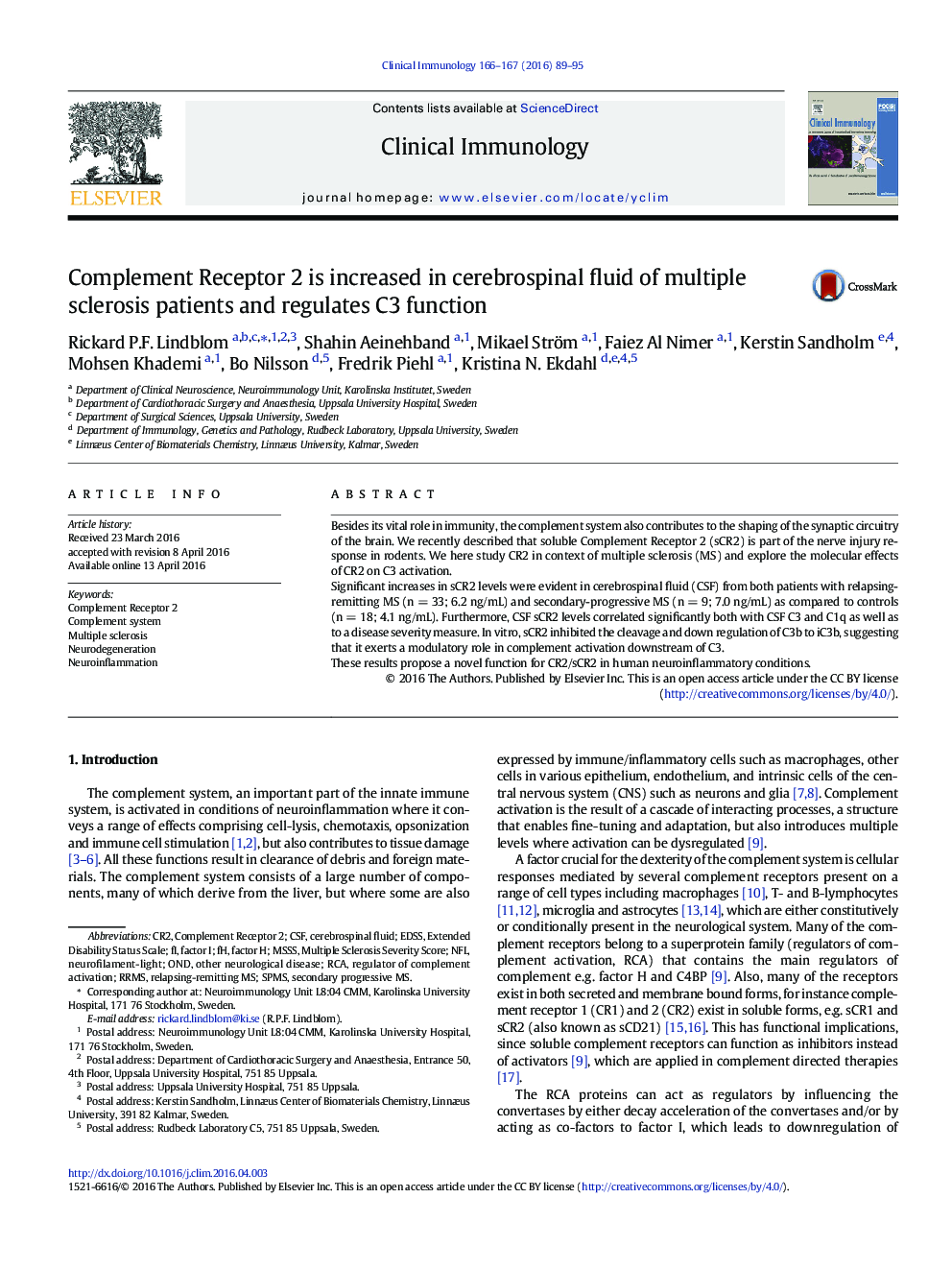| Article ID | Journal | Published Year | Pages | File Type |
|---|---|---|---|---|
| 6087076 | Clinical Immunology | 2016 | 7 Pages |
â¢C3 is elevated in CSF of MS patients and correlates with neurological disability.â¢We here identify soluble Complement Receptor 2 (sCR2) in the CSF of humans.â¢sCR2 was elevated in MS patients compared to controls and correlated with C3 levels.â¢Mechanistically, soluble CR2 inhibits the cleavage of C3b to iC3b.â¢We suggest that sCR2 exerts a modulatory role in complement activation downstream of C3.
Besides its vital role in immunity, the complement system also contributes to the shaping of the synaptic circuitry of the brain. We recently described that soluble Complement Receptor 2 (sCR2) is part of the nerve injury response in rodents. We here study CR2 in context of multiple sclerosis (MS) and explore the molecular effects of CR2 on C3 activation.Significant increases in sCR2 levels were evident in cerebrospinal fluid (CSF) from both patients with relapsing-remitting MS (n = 33; 6.2 ng/mL) and secondary-progressive MS (n = 9; 7.0 ng/mL) as compared to controls (n = 18; 4.1 ng/mL). Furthermore, CSF sCR2 levels correlated significantly both with CSF C3 and C1q as well as to a disease severity measure. In vitro, sCR2 inhibited the cleavage and down regulation of C3b to iC3b, suggesting that it exerts a modulatory role in complement activation downstream of C3.These results propose a novel function for CR2/sCR2 in human neuroinflammatory conditions.
